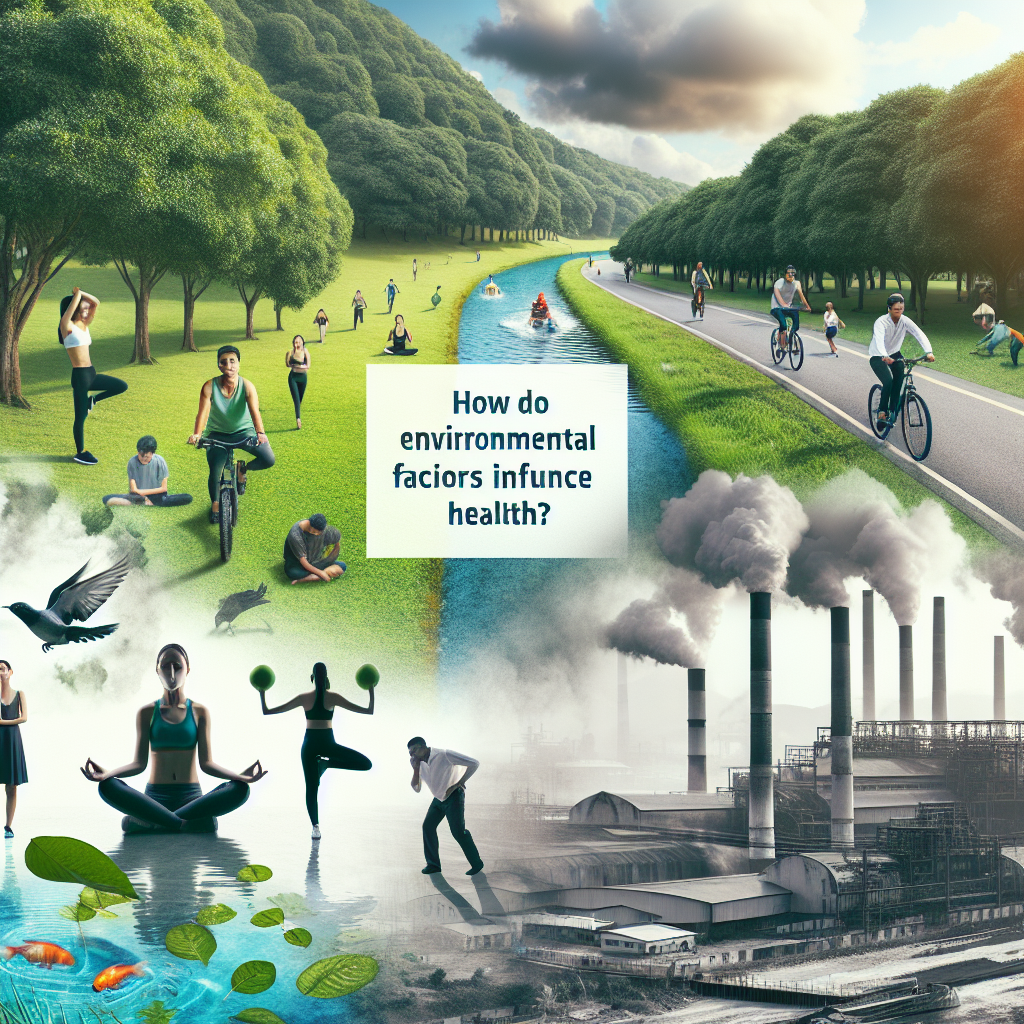Environmental factors play a significant role in shaping the health and well-being of individuals. From the air we breathe to the quality of the water we drink, our surroundings have a profound impact on our overall health. Understanding how environmental factors influence our health is crucial in developing effective strategies to prevent and mitigate the negative effects of these factors. In this article, we will explore the various ways in which environmental factors can influence health and well-being.
Air Quality
One of the most important environmental factors that influence health is air quality. Poor air quality can have a range of negative effects on health, including respiratory problems, cardiovascular diseases, and even premature death. Air pollution is a major concern in many urban areas, where high levels of pollutants such as particulate matter, nitrogen dioxide, and sulfur dioxide can be harmful to human health. People with respiratory conditions such as asthma are especially vulnerable to the effects of poor air quality.
Water Quality
Another important environmental factor that influences health is water quality. Contaminated water can pose serious health risks, including infectious diseases and chemical poisoning. Waterborne diseases such as cholera, typhoid, and dysentery can spread easily in areas with poor water quality. It is essential to ensure that drinking water is safe and free from harmful pollutants to protect public health.
Climate Change
Climate change is one of the most pressing environmental issues of our time, and it has far-reaching implications for human health. Rising temperatures, extreme weather events, and changes in precipitation patterns can have a range of adverse effects on health, including heat-related illnesses, infectious diseases, and food insecurity. Vulnerable populations such as children, the elderly, and people with pre-existing health conditions are particularly at risk from the health impacts of climate change.
Urbanization
The process of urbanization can have both positive and negative effects on health. On the one hand, urban areas may offer better access to healthcare facilities, education, and employment opportunities. On the other hand, urbanization can also lead to overcrowding, pollution, and social inequalities that can harm health. Poor urban planning and inadequate infrastructure can exacerbate health problems such as respiratory diseases, mental health issues, and malnutrition.
Industrialization
Industrial activities can have significant implications for human health. Pollution from industries can contaminate air, water, and soil, leading to a range of health problems such as respiratory diseases, cancer, and reproductive disorders. Occupational hazards in industrial workplaces can also pose risks to the health and safety of workers. It is essential to regulate industrial activities to minimize their negative impact on human health.
FAQs
Q: How does air pollution affect health?
A: Air pollution can have a range of adverse effects on health, including respiratory problems, cardiovascular diseases, and even premature death. Pollutants such as particulate matter, nitrogen dioxide, and sulfur dioxide can irritate the respiratory system and exacerbate existing respiratory conditions such as asthma.
Q: What are the health risks associated with contaminated water?
A: Contaminated water can pose serious health risks, including infectious diseases and chemical poisoning. Waterborne diseases such as cholera, typhoid, and dysentery can spread easily in areas with poor water quality, leading to outbreaks of illness and death.
Q: How does climate change impact health?
A: Climate change has far-reaching implications for human health, including heat-related illnesses, infectious diseases, and food insecurity. Rising temperatures, extreme weather events, and changes in precipitation patterns can exacerbate existing health problems and create new challenges for public health.
Q: What are the health effects of urbanization?
A: Urbanization can have both positive and negative effects on health. While urban areas may offer better access to healthcare facilities and education, poor urban planning and inadequate infrastructure can lead to health problems such as respiratory diseases, mental health issues, and malnutrition.
Q: How can industrial activities affect human health?
A: Industrial activities can lead to pollution of air, water, and soil, causing a range of health problems such as respiratory diseases, cancer, and reproductive disorders. Occupational hazards in industrial workplaces can also pose risks to the health and safety of workers. It is essential to regulate industrial activities to protect human health.
In conclusion, environmental factors play a crucial role in influencing health and well-being. Poor air quality, contaminated water, climate change, urbanization, and industrialization can all have significant implications for human health. It is essential to address these environmental challenges through effective policies and interventions to protect public health and promote a sustainable future.
